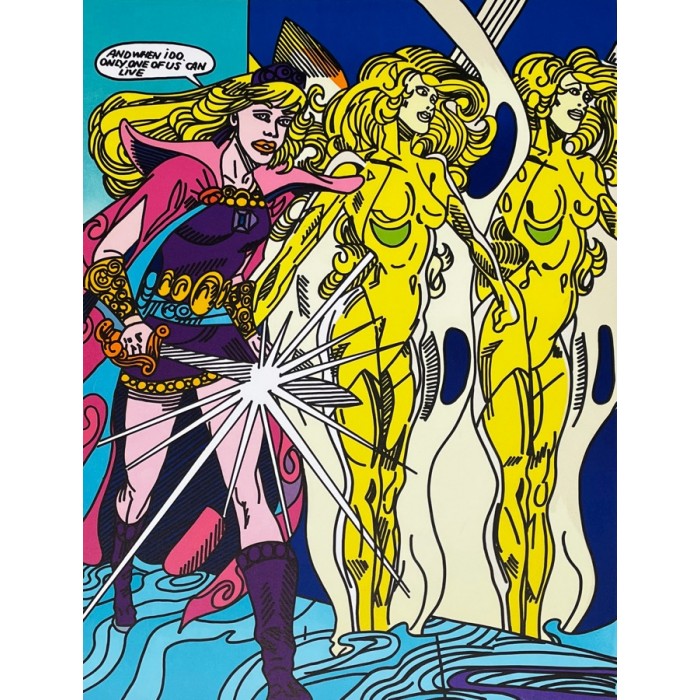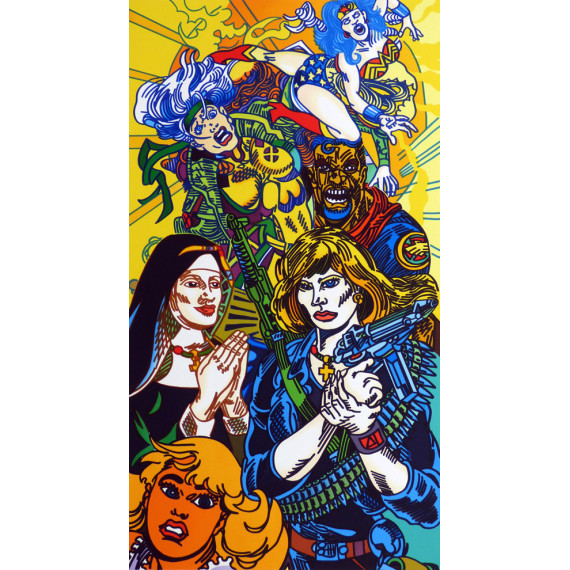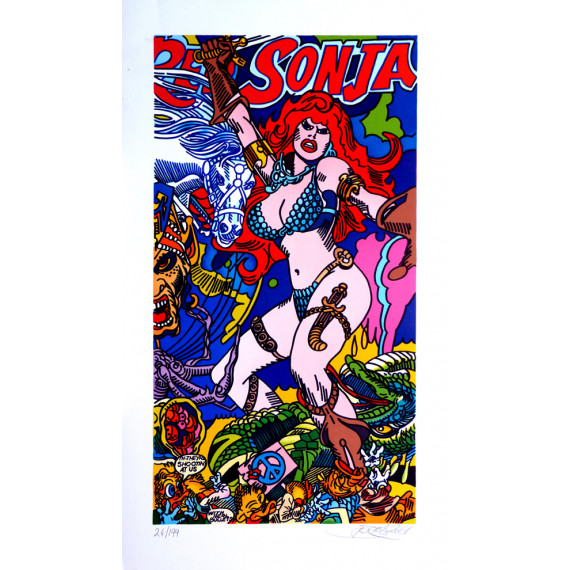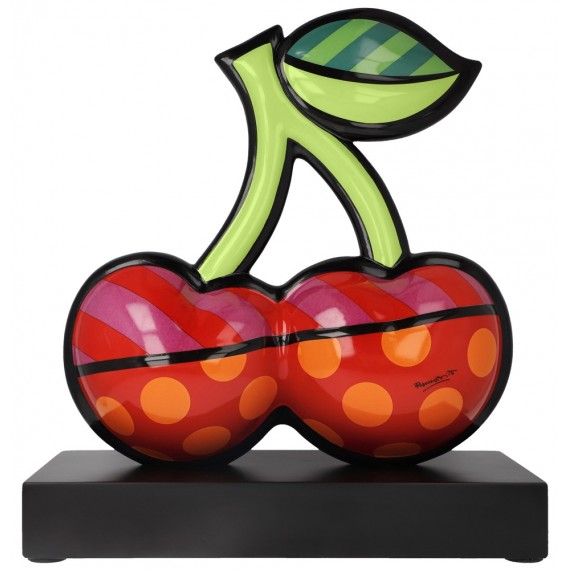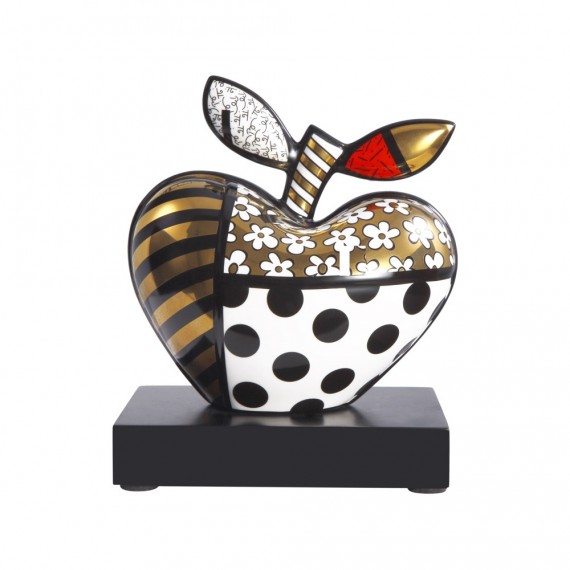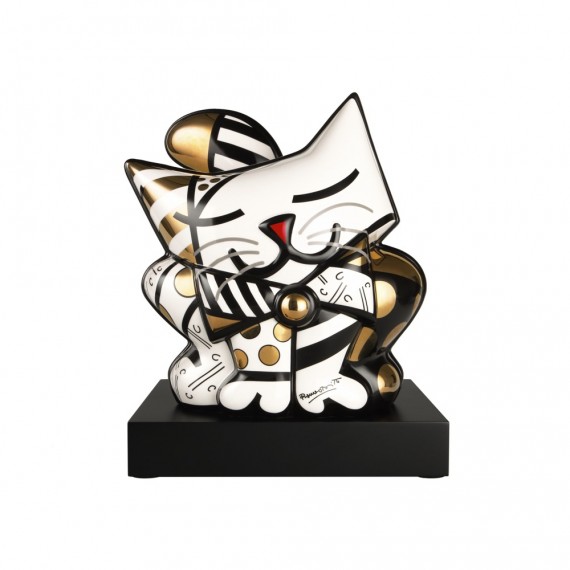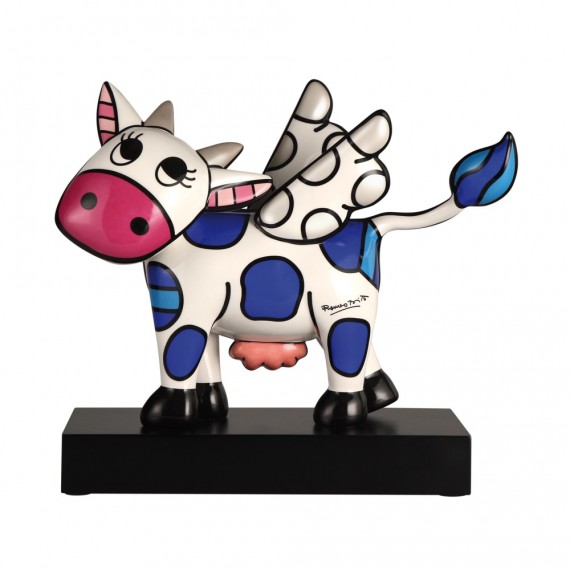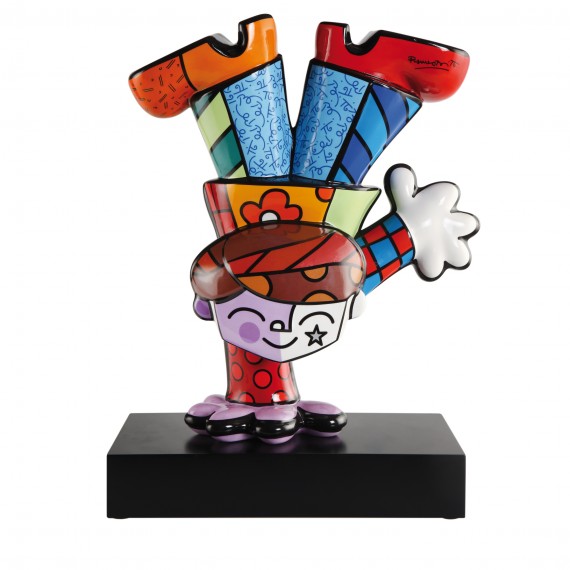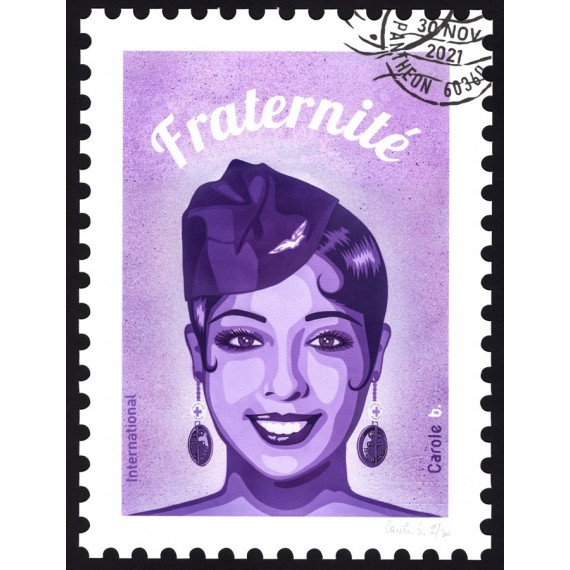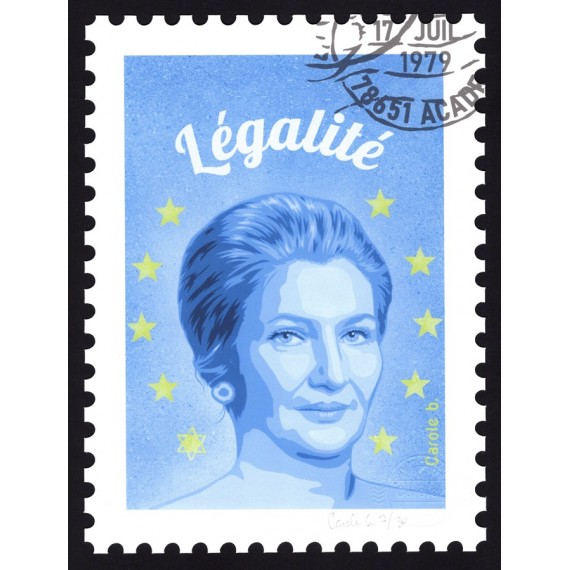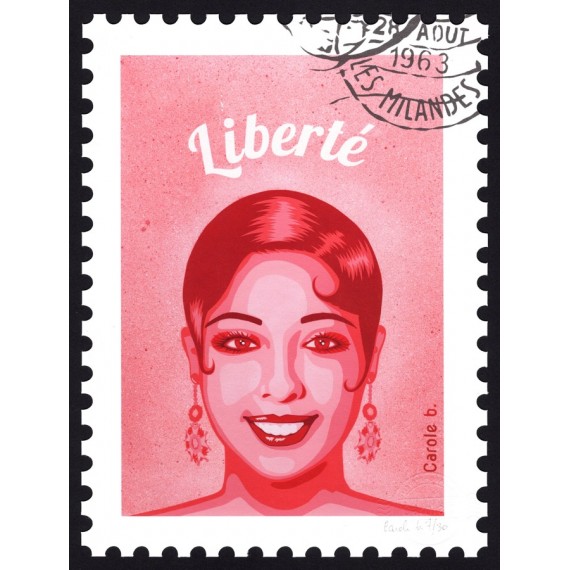Erró (born 1932)
Title: Untitled (2001)
Technique: Color lithograph
Edition: Numbered XXV / LX
Image size (without margins): 45 × 60 cm
Sheet size (with margins): 57 × 78 cm
Description and Critical Analysis
A pop and narrative aesthetic
In this 2001 lithograph, Erró encapsulates the hallmarks of his art: the appropriation of popular imagery, the direct borrowing of comic book codes, and a narrative saturated with visual references. Here, a warrior heroine drawn from American comics confronts her own multiplied reflection in a series of stylized, provocative female nudes.
The clash of icons
The contrast is striking: on one side, a clothed and active figure, charged with dramatic energy; on the other, naked bodies, cold and serial, presented as simulacra. The speech bubble—“And when I do, only one of us can live”—adds a narrative dimension, evoking both the melodrama of pulp comics and the tension of ancient tragedy. The image oscillates between female empowerment and fetishization, between mythology and mass culture.
Color and visual impact
The vibrant palette of flat, saturated tones framed by bold black outlines reflects the pop universe. Visual dynamism is heightened by the white burst of impact at the center, which arrests the eye and anchors the scene in a moment of violent confrontation. Erró orchestrates a strategy of visual saturation, captivating the viewer while provoking multiple layers of interpretation— aesthetic, political, and ironic.
Critical reading
This lithograph exemplifies Erró’s approach: to divert, hybridize, and recycle the visual lexicon of modern culture in order to question our relationship to contemporary myths. Between irony and fascination, he offers a critical mirror of a world overwhelmed by images, where heroism and seduction themselves become commodified spectacles.
Biographical Note – Erró
Origins and training
Erró, born Guðmundur Guðmundsson in 1932 in Ólafsvík, Iceland, studied at the Reykjavík School of Fine Arts, then in Norway and Italy, before settling in Paris in the mid-1950s. There, he became involved with the European avant-garde.
Career and recognition
Erró is a central figure of contemporary art, associated with Narrative Figuration and closely linked to Pop Art. Since the 1960s, he has developed a unique visual language based on collage, appropriation, and the juxtaposition of images drawn from advertising, cinema, comic books, and art history.
Style and themes
Erró’s prolific and ironic oeuvre explores the chaotic imagery of modern society. His compositions bring together comic-book heroes, political figures, pin-ups, futuristic machines, and cultural icons in a deliberately excessive visual mix. By merging the trivial with the mythological, the “low” with the “high,” he questions the ideological power of images and their circulation.
Exhibitions and legacy
From the 1960s onward, Erró has exhibited internationally and has been the subject of major retrospectives, including at the Centre Pompidou and the Musée d’Art Moderne de la Ville de Paris. His work is held in numerous public collections, notably the Reykjavík Art Museum, which houses a permanent space dedicated to him.
Legacy
Erró remains one of the great visual chroniclers of the 20th and 21st centuries. His abundant, caustic work continues to engage with contemporary myths and mass imagery, offering a sharp critique of our image-saturated era.

